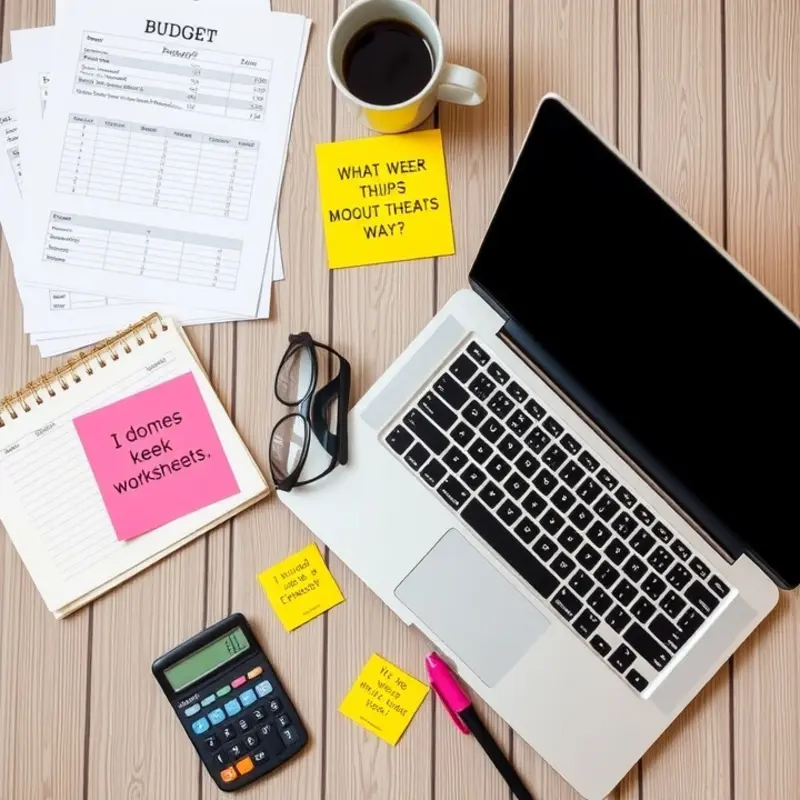Embarking on your first apartment rental journey is both thrilling and a touch daunting. You’re on the brink of adulting; freedom, independence, and (gasp!) budgets await. Navigating costs is essential if you want to live comfortably without residing in a state of perpetual ramen noodle dinners. From understanding monthly expenses to crafting a budget that makes sense for you—no calculators equipped with rocket science needed! This guide aims to give you the tools to manage your finances efficiently while you gear up for all the adulting moments ahead. Whether you’re a young professional in a bustling city, a couple pooling resources, or a family finding that perfect nest, our budget-friendly suggestions will keep your wallet happy and your living situation breezy. Let’s dive in and map out your first apartment budgeting adventure together!
Understanding Your Costs: What Lies Beneath the Rent

Signing a lease for your first apartment is a momentous occasion, but it’s essential to delve into more than just the rent price. Knowing all associated expenses guarantees that you’re financially prepared. While rent is a prominent cost, various other expenses can affect your budget.
Fixed Expenses: Beyond Basic Rent
First, let’s tackle fixed expenses, typically those you can anticipate each month. Rent is the primary fixed cost, but don’t overlook renters insurance. This policy protects your possessions against theft or damages and often costs a few hundred dollars annually. Another predictable outlay is a security deposit, usually equivalent to one month’s rent, refundable after your lease term if the apartment remains in excellent condition.
Parking is another potential fixed cost if your apartment doesn’t include a space. It can range significantly based on location, from $50 to several hundred dollars monthly. Some complexes may also charge an amenity fee to cover common areas or a maintenance fee for upkeep.
Variable Expenses: Navigating the Fluctuations
Utility bills represent the most significant variable expense. They include electricity, gas, water, and sewage, typically not included in rent. Monthly costs fluctuate based on usage; summer might see higher electricity bills from air conditioning, while winter months could spike gas bills from heating.
Internet and cable are also essential but variable elements of your monthly outlay. Prices differ widely depending on plans and providers. It’s prudent to allocate a reasonable estimate within your budget for these utilities, adjusting as bills materialize.
Hidden Fees: The Expenses Lurking in Lease Clauses
Beyond fixed and variable expenses lie hidden fees. Application fees are common upfront costs, varying but usually moderate, covering background checks and administrative work. Pet owners should anticipate pet deposits or monthly fees if your rental is pet-friendly.
Some landlords may charge an early termination fee if circumstances require breaking your lease prematurely. It’s vital to understand these fees and factor them into your contingency plan.
Another often-overseen cost is moving expenses. Whether hiring professional movers or renting a truck, moving can add a sizable chunk to initial costs. Consider these while planning your big move.
Planning Your Budget: Prepare and Prevent Surprises
With a clear understanding of associated costs, the next step is effective budget planning. Begin by listing all potential expenses, categorizing them into fixed, variable, and unexpected costs. Allocate funds for each, ensuring you also have a small buffer for emergencies.
To aid in budget allocation, consider using online budgeting tools or apps that track expenses. These can offer insights into spending patterns, helping you refine your financial plan.
For additional tips on improving your financial well-being as a renter, check out our financial planning for renters guide. By planning meticulously, you enable a smoother transition into your first apartment, avoiding pitfalls many new renters encounter.
Understanding these fundamental expenses helps lay the groundwork for successful apartment living. Armed with this knowledge, you’re well on your way to a financially secure renting experience.
Crafting the Perfect Budget: Building Your Financial Fortress

Creating a budget is akin to building a fortress; each line item is a brick in your financial stronghold. Let’s embark on this quest by examining popular budgeting methods. First, the 50/30/20 rule is a favorite for its simplicity. Allocate 50% of your income to needs, 30% to wants, and 20% to savings and debt repayment. This method helps balance living expenses while ensuring future security.
Another dynamic option is zero-based budgeting. Here, every dollar has a job, leaving no penny unaccounted for. Begin by listing all income sources, then allocate funds to every expense including savings until your income minus expenses equals zero. For those who dive deep into numbers, this method builds intense accountability.
Once you’ve chosen a method, it’s time to drill down into the details. Start with fixed expenses like rent, utilities, and any mandatory bills. On average, U.S. renters should earmark around 30% of their income for rent. For tips on safe budgeting in shared spaces, explore different cohabitation styles here.
Variable expenses require a keen eye. Keep track of grocery fluctuations and entertainment whims. You’ve heard the tales of post-midnight online shopping regrets, so set firm boundaries. Create spending categories and adhere to them. Remember, happiness isn’t found shopping from bed at 2 A.M.
Saving is your fortress’s foundation. Open a dedicated savings account and automate transfers with each paycheck. Ensure your emergency fund covers three to six months of expenses. This buffer protects against unforeseen events, like sudden job changes or surprise bills from well-meaning but clumsy friends.
Expense tracking has never been easier. Use smartphone apps to monitor spending habits and keep receipts for major purchases. Regularly review your budget, adjusting as needs change. Life throws curveballs faster than a hot gossip spreads, so be flexible.
Splurge bursts are tempting. To combat the lure of impulse buys, introduce a waiting period. If a non-essential item catches your eye, revisit it after 48 hours. Often, the initial thrill fades, sparing you a purchase you didn’t truly need.
Budgeting should also consider life enhancements like self-care routines. Dedicate a portion of your budget to activities that boost your well-being without busting the bank. If you seek simple yet satisfying DIY home improvements, tap into creative resources that help build a comfortable space.
Construct your financial fortress with foresight and discipline. As you nurture budgeting habits, monitor them as rigorously as a roller coaster inspector. Fortify each brick with savings, goals, and wisdom, ensuring your apartment living is both stylish and sustainable. Arm yourself with these strategies and manage your finances with the prowess of a seasoned landlord.
Final words
Budgeting for your first apartment doesn’t have to be a daunting task. With the right mindset and a clear outline of your costs and income, you can craft a budget that empowers you rather than restricts you. You’ll remember these budgeting days with a smile—as long as you skip the impulse buys and stick to your plan. Embrace the financial freedom that comes with understanding your budget, and enjoy diving into your new apartment adventures. Here’s to living your best adult life, one logical budget at a time!









